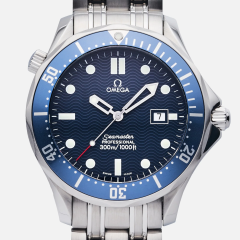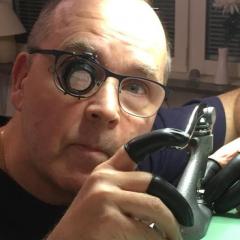-
Recently Browsing
- No registered users viewing this page.
-
Topics
-
Posts
-
By rjenkinsgb · Posted
Great idea - but can access to this thread or the list be restricted to member only somehow? Or move it to a new category linked from here, and make that category members only? At the moment the list - with all the real names & contact info - is totally unprotected and accessible to any spambot or other malicious webscapers, which is rather worrying. (Just tried it with a different browser & via proxy in the US - this thread and the list are fully public, at present). -
By rjenkinsgb · Posted
I've been programming, building electronics for, repairing and retrofitting machine tools and industrial automation systems for over 40 years now. I could have retired, but I always have work queued up - and I still enjoy it; also building electronics, robots and animatronics (among other things) as hobbies. There is a vast range of work in machine tool / robotics / industrial automation field, and not all that many really good people, who fully understand the electronics and software side, rather than having been forced in to it from the mechanical side & struggling with anything to do with electronics or software. I can't help with the qualifications side - things have changed too much over the years, & I started my business before I left school. At the time I was getting criticised and even penalised by teachers for spending too much time on the school "computer" (a massive early programmable calculator, really) because computers & programming were a waste of time, according to them! One big problem I am aware of is that a lot of university courses have little to no correlation to real-world industrial machines and equipment - most of the equipment in the field that needs work is old! You have to be an enthusiast and study older system and techniques; it's no good knowing the state of the art electronics & software inside out when you are more likely to be working on a 50 year old machine than a brand new one. The oldest machine I routinely work on was made in 1911; many are from the 1950s - 80s. New machines tend to be under warranties or service contracts, so only the makers agents ever touch them - it's the older gear that gets sold on after it's showing its age and really needs actual engineers! -
I got this set from Cousins. I believe the arbors are steel and it's been working very well. Not all Chinese sets are the same. Some a decent and some are crap. My most appreciated mainspring winder is my Master Craft Mainspring Winder:
-
Excellent advice! Mainspring winders are generally a nightmare. In order to be absolutely sure that they work, they must be adapted for specific calibres. Sure, you can build up a collection of winders over time, but it's expensive and time-consuming and you still can't be sure that any of the ones you have in your collection will fit. When I was new, I considered buying Bergeon's large universal set because I thought it would cover all situations, but that's not the case. The risks of hand winding a mainspring are often exaggerated. With the right technique and training, the risks are not much greater than with a winder. Moreover, if the spring has a T-shaped bridle, you may not even get it into the barrel. Here is an excellent description by a professional how to hand wind: Yes, a well-established practice among professional repairers is to always replace the spring even when it is in good condition. Personally, I think it is an unnecessary cost because modern springs last a very long time. Some fatigue occurs over time but if you are unsure, you can always test the power reserve. It is also an unnecessary risk to replace a spring if it is still in good condition. If an original spring is not available, it is not certain that the alloy in a generic spring corresponds to the properties of the original spring. This seems to be particularly true for some Japanese movements, especially Seiko and Orient. For any Swiss movement, I'd say the risk is non-existent.
-








Recommended Posts